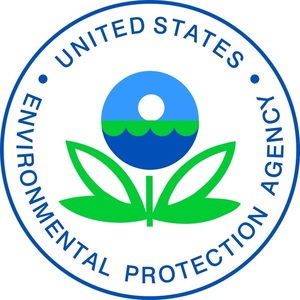EPA responds to GAO report on RIN prices, small refineries

December 20, 2022
BY Erin Krueger
The U.S. EPA on Dec. 20 released a final analysis on the price of renewable identification numbers (RINs) and small refineries in response to a recommendation included in a recent U.S. Government Accountability Office report. The final analysis confirms the EPA's conclusion that small refineries recover their Renewable Fuel Standard compliance costs in the price of gasoline and diesel that they sell.
The GAO in November released a report on the RFS small refinery exemption (SRE) program, claiming that its analysis determined that the EPA does not have assurance that its decisions about SREs are based on valid information. The report also claims that the EPA and DOE do not have policies and procedures specifying how they are to consult about and make exemption decisions. Representatives of the ethanol industry slammed the report, calling it shoddy and obsolete.
Within the report, the GAO makes seven specific recommendations related to the SRE program. One of those recommendations calls on the EPA to reassess its conclusion that all small refineries recover their compliance costs in the price of the gasoline and diesel they sell, including by fully examining and documenting RIN market performance and RIN pass-through in all relevant fuel markets.
Advertisement
The EPA on Dec. 20 released its response to that recommendation. EPA said it has completed a final analysis that “resolves this recommendation and confirms EPA’s preliminary results from its initial analysis and explanation provided to GAO, which is included in Appendix IV of the GAO report.”
As part of its final analysis, the EPA analyzed more than 2.2 million RIN transactions, accounting for 140 billion RINs, for companies that traded separated RINs for conventional renewable fuel (D6) and biomass-based diesel (D4). The analysis covered approximately 43 percent more RIN transactions than were analyzed in a recent GAO report. The transactions include RIN price data for 24 small refineries that purchased and/or sold RINs as separate facilities. All 24 of those small refineries have submitted SRE petitions to the agency for at least one RFS compliance year.
Advertisement
According to the EPA, its analysis found that on average, these 24 small refineries paid 1.1 percent, or 1.2 cents, more per RIN when buying separated RINs when compared to the average daily price and 0.5 percent, or 0.6 cents, more per RIN than the largest 20 refiners.
A full copy of the final report is available on the EPA website.
Related Stories
CountryMark on July 22 celebrated the completion of more than $100 million in upgrades at its refinery in Indiana, including those related to soybean oil storage. The facility produces renewable diesel via coprocessing technology.
ATOBA Energy and Air Moana are partnering to implement scalable solutions for the supply of SAF. The collaboration aims to ensure long-term SAF availability while supporting local initiatives to develop sustainable fuel production in Tahiti.
While final IRS guidance is still pending, the foundation of the 45Z program is well defined. Clean fuel producers should no longer be waiting; they can now move forward with critical planning and preparation, according to EcoEngineers.
Neste Corp. on July 24 released second quarter results, reporting record quarterly renewable product sales volumes despite weaker margins. SAF sales were up nearly 80% when compared to the first quarter of 2025.
Valero Energy Corp. on July 24 released second quarter results, reporting a profitable three-month period for its ethanol segment. The renewable diesel segment posted a loss, but the company’s new sustainable aviation fuel (SAF) unit operated well.
Upcoming Events










